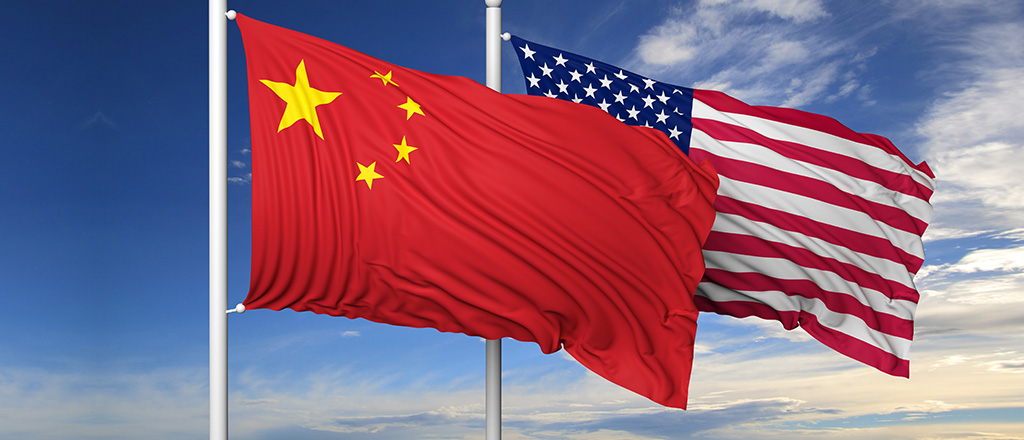US blocks China, again
February 16, 2018 | Expert Insights

The U.S. Securities and Exchange Commission (SEC) has barred the proposed sale of the Chicago Stock Exchange to a group of Chinese-led investors.
In the recent months, US has consistently blocked nearly all proposed sales of US companies to Chinese buyers.
Background
The United States and China are the two largest economies in the world. Both countries consider the other as a partner in trade and an adversary in geopolitics.
Diplomatic relations between US and China was first established in 1844 with the Treaty of Wanghia. This agreement allowed the US to trade in Chinese ports. After the Qing Dynasty was overthrown, in 1911, US recognized the legitimacy of the Republic of China (ROC) government.
The two countries have established a robust framework of trade. Currently, the US-China trade relationship supports around 2.6 million jobs in the United States. In 2015, China purchased $165 billion in goods and services from the United States in 2015. After Japan, China is the biggest overseas creditor to the US. Its holdings of US debt come to around $1.12 trillion dollars.
In September 2017, the US administration played a direct role in blocking the sales of American companies to Chinese conglomerates. News emerged that US President Donald Trump blocked the sale of an American technology company called Lattice Semiconductor to a Chinese-backed organization called Canyon Bridge Capital Partners, LLC.
In November, Liu Zhongtian, a Chinese metals entrepreneur, abandoned a $2.3bn deal to acquire US aluminium producer Aleris. In January 2018, US blocked the sale of money-transfer service Moneygram to Ant Financial, an affiliate of the Chinese e-commerce giant Alibaba. The sale was worth $1.2 billion.
Chicago Stock Exchange
Founded in 1882, the Chicago Stock Exchange (CHX) is a national securities exchange and Self-Regulatory Organization, which operates under the oversight of the U.S. Securities and Exchange Commission (SEC).
Analysis
On December 2016, a U.S. panel that examined foreign deals for potential national security concerns cleared the purchase of the Chicago Stock Exchange by a China-led group of investors. However, since then, the SEC has stalled the progress of the sale. The group of investors that own the Chicago Exchange even came out with a statement noting, “Since the SEC staff’s approval, the SEC Commissioners have continued to delay taking a vote, using a rule that circumvents the congressionally imposed 240-day deadline for a decision, leaving the deal in indefinite limbo. This acquisition would provide vital capital to the Exchange, which would be used to boost numerous initiatives designed to benefit the city of Chicago, and the U.S. economy and market structure as a whole.”
On February 2018, it was confirmed that the SEC was barring the sale from taking place. The SEC has cited a number of security concerns with regards to whether the deal would allow it to supervise the exchange properly. "The review process has also raised questions about whether the proposed ownership structure will allow the commission to exercise sufficient oversight of the exchange" the SEC said on Thursday.
The latest news comes just a few weeks after the US blocked a potential deal between Chinese tech giant Huawei and & US carrier AT&T in a bid to sell Huawei phones in the US. Most recently, six heads of US intelligence bodies warned Americans from using Huawei products as they believed it would compromise security. Intelligence agencies have also warned of Chinese spies infiltrating the US through universities.
The Chicago Exchange has not publicly commented on the latest development. Some US lawmakers have however welcomed the news. "This has been a long fight, and I'm grateful we now have a president who recognizes the national security threats of allowing a Chinese government-affiliated company to own the Chicago Stock Exchange," Republican Congressman Robert Pittenger said in a statement.
Assessment
Our assessment is that the US is clearly concerned over the growth of China’s global influence. It is also indicative of the uneasy relationship between the US and China regarding trade. Other sales that are currently threatened by the political climate include the China Oceanwide Holdings Group's $2.7 billion purchase of US life insurer Genworth Financial and the acquisition of US mobile marketing firm AppLovin by Orient Hontai Capital for $1.4 billion.








Comments